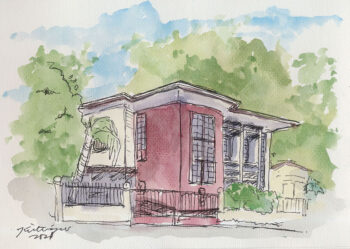Part 1
CAGAYAN DE ORO CITY (MindaNews / 25 February) — The barangay is an economy in its own right—with land, labor, and capital. All the nation’s wealth and resources are found in some barangay or other. Except for those in the poblacion, which are generally smaller in area, a typical barangay comprises several square kilometers. It has all manner of natural resources: lowland or upland, seacoast or hinterland, flat or hilly, urban or rural, forested or mineral rich.
Apart from the households that reside in its neighborhoods, a barangay is home to various corporate citizens: business, industrial, agricultural, schools, and social institutions. There are professionals, artists or artisans engaged in all sorts of productive activities and services. It is an economy in a real sense. As such, it needs to be managed efficiently and productively if it is to grow and prosper.
Managing the barangay ought not to be difficult because it is also a corporation with requisite powers resources, or assets. The residents are its stockholders, many of them with untapped equity that could multiply the quantum of its revenues if mobilized and deployed to capitalize community projects and enterprises.
Japan and Korea are Tiger Economies because their social, economic, and political systems are firmly anchored on their villages, which are like our barangays. But theirs are well managed, their residents productive. Their households operate like a corporate entity and every village is a virtual conglomerate, every town or city a globally competitive mega-corporation, while the upper levels of government serve as a mammoth support system.
It’s a system that makes their villages a solid base on which their politics and economics rest. It is why people refer to them as “Japan, Inc.” or “Korea, Inc.” when referring to those countries. China, too, is catching up, and its village-based system has a lot to do with it. There the village holds the key to one’s ancestry and citizenship. Every Chinese can trace his name, ancestry, or roots to his village.
To advance the nation’s development, we need to deconstruct our concept of “governance,” which quite simply is another term for “management,” and define it as “managing the community’s resources—human, physical, technological, financial—in order to bring about development and progress for all.” Politics and governance ought to be viewed this way; not merely as the quest, capture, or manipulation of political power, as the trapos do.
Every barangay or community has land values, locational advantages, natural resources, tourism assets, talents, and technology. Properly managed, this economy can grow and produce new wealth. An average of P10 million in new goods and services among the nation’s 42,000+ barangays would add about half-a-trillion pesos to the Gross Domestic Product.
Double that and maybe you cover the nation’s budget deficit and whittle down its foreign debt. In the process, you may have created livelihood for 100 jobless in your barangay’s neighborhoods. In which case, you’ve practically wiped out unemployment or eliminated idleness (which is the devil’s workshop and incubator of discontent and insurgency or rebellion). Not only that, it may stop the hemorrhage of our talented workforce who seek relief from their poverty abroad.
Economic planners ought to look into this angle closely and get the people to build up their local economy themselves, barangay by barangay. This is not about large-scale enterprises or big-time corporations. Just small and medium barrio projects, even “bote-dyaryo” and fish-vending enterprises that may well grow into Manny Villar, Lucio Tan, or Henry Sy proportions.
If every sector of the community gets into the act, the local economy will perk up. It will be easier for the nation’s economic managers to steer at macro levels. You can’t rev up the nation’s economic engine with rickety or non-functioning cogs and wheels below.
(MindaViews is the opinion section of MindaNews. Manny Valdehuesa is former UNESCO regional director for Asia-Pacific; secretary-general, Southeast Asia Publishers Association; director, development academy of Philippines; and vice chair, Local Government Academy. He is chairman/national convenor, Gising Barangay Movement Inc. valdehuesa@gmail.com)







